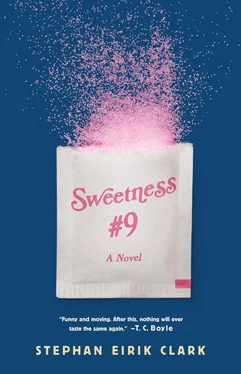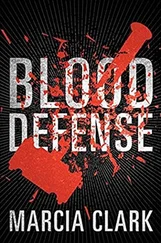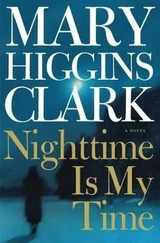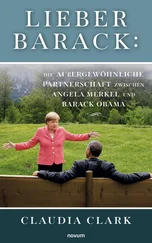Even though the war had begun to turn in favor of the Allied Powers, the talk in the cafeteria each afternoon was still dominated by those who spoke of the next wave of rockets that would obliterate London and even New York City. Only the Lithuanian and the man from Munich showed no outward signs of patriotism. They seemed to look forward to nothing so much as the film screened in the recreation hall each Wednesday night. (Give them a good song and dance number and they’d have something to talk about for days.)
Their work habits were no more commendable. They arrived late to the lab each morning, forgot to stopper the brown bottles they removed from the flavor library, and even blew Ernst a kiss before leaving early. It was the kiss that infuriated him the most. These men never washed their hands, and so who could say what chemicals they’d handled that day and what risk it might bring to their mouths? Bad science, that was what it was, and that’s what Ernst couldn’t stand — more than being a bad German, being a bad scientist.
One afternoon, when they didn’t return from a long lunch, Ernst strode out to the tent they’d been given after the bombing raid and pulled at the flap, expecting to find them lounging half-naked inside. When he saw they weren’t there, he continued to the showers at the edge of the woods, wishing von Braun were at his side. “Do you see what I’m left with? Their commitment?”
There was only one man in the bathroom, a porcine fellow from the jet propulsion lab who sat on a bench in his robe reading the latest news about Stalingrad. They shared a glum look and a slow nod hello, and then Ernst started back for the lab, spying them in the distance. They were walking out of the woods, the Lithuanian holding a picnic basket as the man from Munich laughed, carrying a bottle of wine.
Rather than confront them, Ernst briskly returned to the lab. He wanted to get all of the details right for his report, so he went straight to their workbench and made a note of the papers littered everywhere, the half-eaten strudel from breakfast, and then — and this disturbed him more than anything else — a partially filled test tube left leaning at an angle atop a scruffy pink eraser. Ernst snatched it. He picked it up, ready to dump its contents into the sink, but before he could, his nose passed over the test tube’s mouth and he smelled something sweet. Something warm. Something light and somehow pink. He breathed it in a second time, drawing the odor deep down into his lungs, and it was so divine, a sensation so vibrant and alive, that he imagined he might float up out of his boots. He kissed his fingertips. He couldn’t help himself. He kissed his fingertips to compliment the work, and it was then that he tasted it — something sweet, something far sweeter than sugar, something unlike anything nature could possibly hold.
He rushed to the other side of the room and poured the contents of the test tube into his cold cup of coffee. The sweetness overtook the bitter taste. It was inspired, and so he returned to their work station in great haste, bringing with him a scrap of paper and a pencil, and while glancing between their notes and the door, he jotted down the formula and even the name they had already given it: Geschmack Drei.
“They were captured by the Soviets after the war,” Ernst told us, “but I don’t think they lived long enough to share their secrets. Even if they had, such sweetness could not have survived in Soviet Russia. And so when I left Hitler’s bunker, I took with me only a flashlight and their formula, which was written on a piece of paper that I kept folded in my shoe.”
This morning Ernst told us he had been reassigned to Berlin in late August of 1944, not February of 1945 as he had told everyone since being profiled by Food & Flavor magazine a few years after the war. I didn’t dare stop him to question the date, as to do so would be akin to rousing a man from a waking dream. I sat there like the others, listening.
“When I arrived,” he said, “Hitler was even more hypnotic than I remembered. He spoke of Frederick the Great and a miracle that’d save us from defeat. I believed his every word and secretly feared I’d failed him. I was a German. I wanted to win. What did I know? It was my side. That simple. And so I did what I could. I sweetened his linseed mush and muesli for breakfast, and I made more lively the vegetable juice he drank throughout the day. When he grew depressed, I increased the dose, believing Geschmack Drei would lift his spirits. But by March of ’45, after more than a half year of use, he was speaking of suicide and admitting defeat. Such pitiful words I could have understood coming from the mouth of the Lithuanian or that man from Munich, but Hitler? I didn’t know how to explain it. By April, when he was sending even his secretaries away, I no longer recognized him.
“I was among the last to leave,” he said. “I was still there the morning Goebbels shot himself after watching his lovely wife feed their six sleeping children capsules of cyanide. I had sweetened their coffee. For months I had done this. Like always, that final morning they marveled at the taste.”
He could remember the details and occupants of the bunker with greater force of clarity than he could recall the events leading up to his moving in with us. He spoke of SS-Obersturmbannführer Peter Hogel, of General Hans Krebs and Officer Burgdorf. He recalled mornings in the bunker’s kitchen with Magda Goebbels and Eva Braun, and conversations about Native Americans with Dr. Ernst-Robert Grawitz. The last of these figures sat down one evening at the dinner table with his wife and two children and pulled the pin of a grenade while they ate. Grawitz’s suicide was not a solitary act. He and all the others Ernst had named took their own lives, just as he and all the others had been amongst the most gushing fans and dedicated users of Geschmack Drei.
“Some took it in large doses over several weeks. Others had little more than a sip of sweetened coffee on the day they chose to die.
“After the war, I shared my concerns with the Americans who processed me. I made connections and spoke of unwanted side-effects. And they — what did they do? They took the formula, saying it might have a military use. What could I say?” he asked, looking directly at me. “I was glad to be done with it. I had a passport in exchange. A ticket to New York City.
“Years passed,” he said. “I forgot, or stopped thinking about it, and then a friend from Goldstein, Olivetti, and Dark has breakfast with me at my house one morning and insists I put something in my coffee.” His face brightened. He chuckled. “I recognized it right away. It had been reformulated — six times, I suppose — but even if it was weaker, it still registered on the tongue like a burst of sunlight.”
He looked to me again, his mind having reached a time in which I existed, and like that it all came to a stop. His eyes grew clouded, his body fell into itself, and he looked away as if he’d been unplugged.
It didn’t matter. His story didn’t have an end any more than time did; it continued in me, just as the past carried over into the present, the one shaping the other as much as the other shaped the one, our lives as malleable as Silly Putty.
Ernest got up from the table first, and then Priscilla and Betty. I stayed there for another ten or twenty minutes, though, staring no less blankly into the future than my mentor. If the others saw his failures revealed through this story, I found my empathy. Because what could he have done to protest the use of Sweetness #9? Spoken out against the very government that had let him into the country in exchange for Geschmack Drei ? He would have had his green card revoked, or been deported like that former guard at Treblinka who’d been discovered living in Cleveland. What’s more, and this thought was almost exhilarating and certainly freeing, if The Nine was but a watered-down version of Geschmack Drei, that meant my refusal to do anything all these years could be but a symptom of Sweetness #9 poisoning. Priscilla was right. I was sick, no different from everyone else. For what is apathy if not a watered-down version of suicide?
Читать дальше












